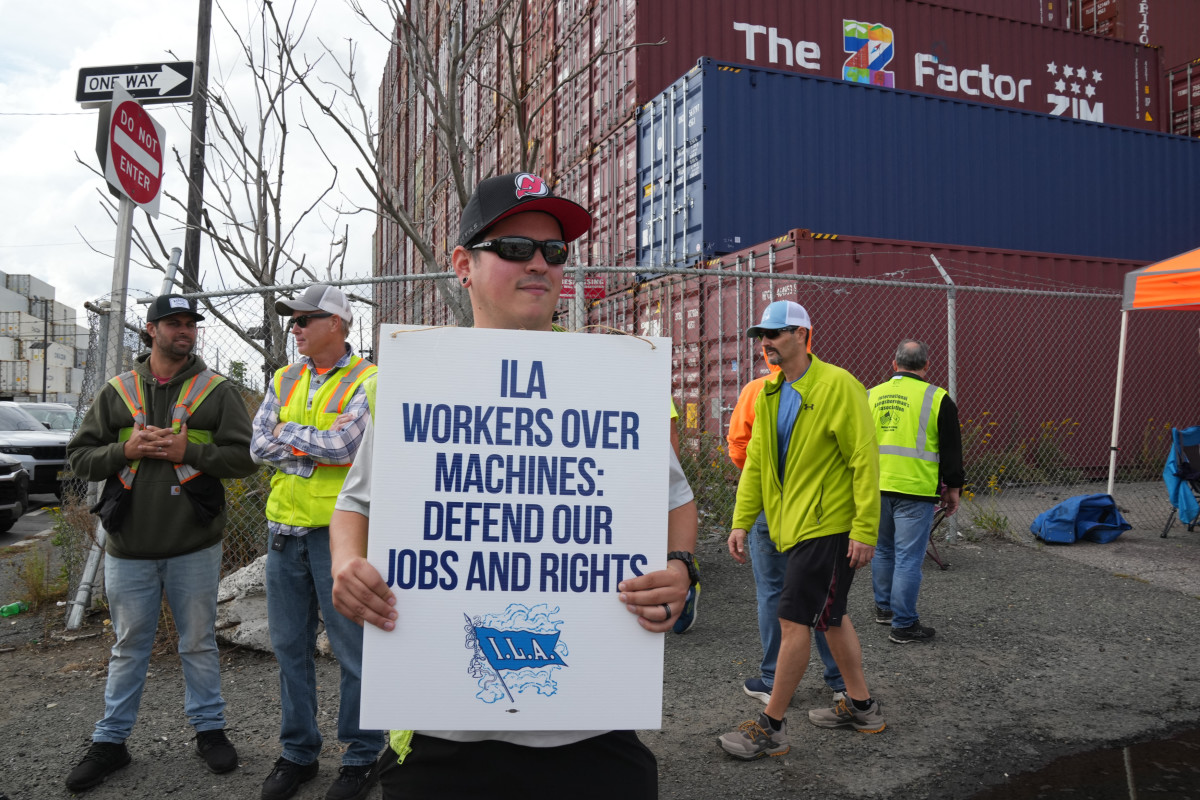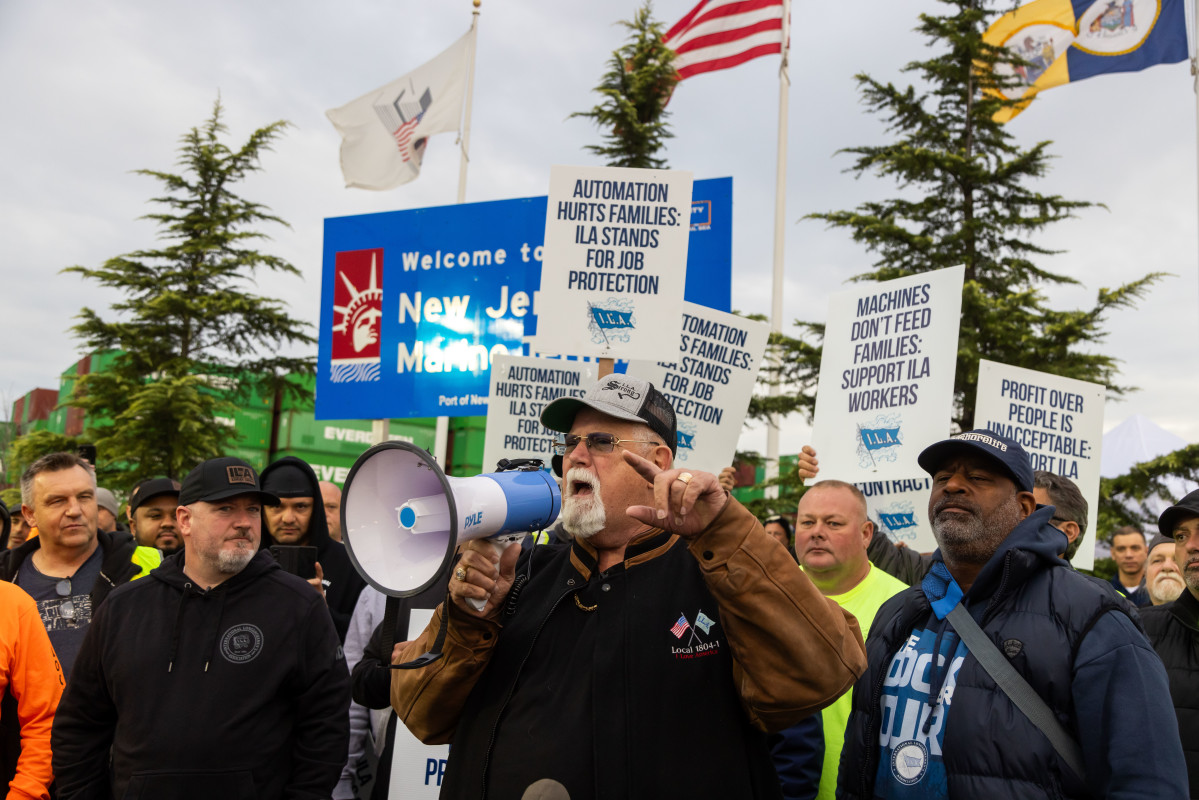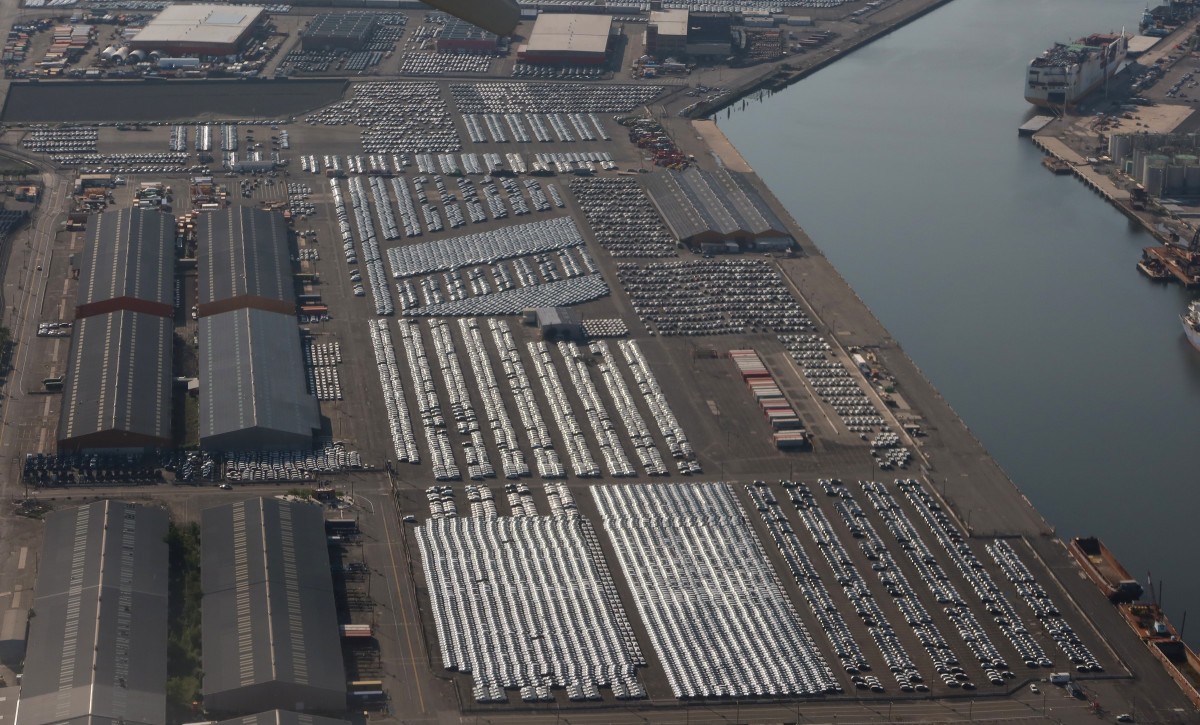
In a recent video, International Longshoremen's Association (ILA) International President Harold Daggett explicitly warned the powers that be that the union under his wing could alter the course of the U.S. economy if a favorable deal was not reached and a strike were to take place at midnight on October 1.
“I will cripple you, and you have no idea what that means. Nobody does,” Daggett said. “These people today don’t know what a strike is. Everything in the United States comes on a ship.”
Don't miss the move: Subscribe to TheStreet's free daily newsletter
A deal wasn't reached, so thousands of workers at key ports are now on strike.

Longshoremen go on strike
At 12:01 A.M. on Oct. 1, over 45,000 port workers from Texas to Maine headed to the picket line as the contract between the ILA union and the U.S. Maritime Alliance (USMX) expired.
In past statements, the ILA has said that it seeks higher wages that keep up with inflation's pace and protections against automation.
In a statement seen by Reuters on September 30, the USMX said it offered to raise wages by 50%, exchanged new proposals with the union, and asked for an extension of the current contract between the two.
"We are hopeful that this could allow us to fully resume collective bargaining around the other outstanding issues — in an effort to reach an agreement," USMX said.
More Automotive:
- The Buick Envista is America's wake-up call for Chinese cars
- Ford CEO says he's sick and tired of making 'boring' cars
- Toyota rebuffs attack as it follows Ford as new anti-DEI target
In a statement, the ILA says that the offer fell "far short of the demands of its members to ratify a new contract." CNBC reports that the ILA is seeking a wage increase of 61.5%.
“We are prepared to fight as long as necessary, to stay out on strike for whatever period of time it takes, to get the wages and protections against automation our ILA members deserve,” Daggett said in a statement on Tuesday.
“USMX owns this strike now. They now must meet our demands for this strike to end.”

The port strike's impact on the auto industry
This is the ILA’s first strike since 1977, but the potential impact that it could have on the auto industry is unprecedented.
Ports manned by ILA-represented workers handle nearly half of the country's ocean shipping, including two significant ports that auto manufacturers rely on: the Port of Baltimore and the Port of New York and New Jersey.
The Port of New York and New Jersey, the largest port on the East Coast, is not only a hub for consumer goods for retailers like IKEA and Walmart but also automakers for automakers like General Motors (GM) , Volvo, Ford (F) , Stellantis (STLA) , and Nissan.
Additionally, Toyota and BMW operate and manage their own vehicle distribution centers and vehicle logistics operations at the port for their respective brands.
Related: Dodge has a huge problem on its hands (and it's growing)
Port Authority of New York and New Jersey Executive Director Rick Cotton said in a statement seen by Reuters that marine terminals at the port closed at 5 p.m. EST on September 30. Over 100,000 shipping containers will remain stored at the port, and 35 ships en route will drop anchor until a resolution is reached.
In a statement to TheStreet, a BMW spokesperson said that the automaker is "monitoring the situation closely" and is also "working to minimize any impact" on its business.
The ILA strike is also affecting the Port of Baltimore, the busiest U.S. port for car shipping. According to Automotive News, over 847,158 passenger cars and light trucks were handled at the port in 2023 for brands like Audi, Bentley, BMW, Ford, General Motors, Jaguar-Land Rover, Lamborghini, Mazda, Mercedes-Benz, Mitsubishi, Nissan, Subaru, Stellantis, Toyota, Volkswagen and Volvo.
TheStreet has reached out to Toyota USA for comment.
Related: Veteran fund manager sees world of pain coming for stocks







